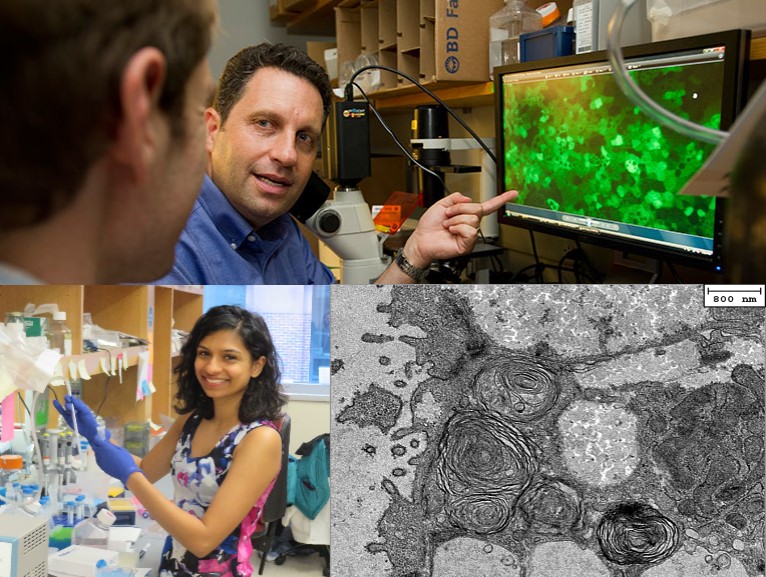Jacob and Kotton Publish Tools for Making Lung Epithelial Cells

Jacob, Kotton, and colleagues have developed a method for producing self-renewing lung alveolar epithelial cells from any patient. Their protocol, published in the December 2019 issue of Nature Protocols follows on their recent Cell Stem Cell publication (Jacob et al. Cell Stem Cell, 2017) where the team was able to reprogram patient blood specimens into induced pluripotent stem cells and then discovered how to employ these stem cells to engineer new human lung epithelial cells in the laboratory. Anjali Jacob, the first author of the new publication, developed the method as part of her doctoral thesis work as a BU MD/PhD student in the Pulmonary Center and Center for Regenerative Medicine. Induced pluripotent stem cells (iPSCs) are the engineered equivalent of embryonic stem cells, but can be generated from adult patients through a technology known as reprogramming. The Kotton Laboratory is an international leader in applying reprogramming to generate lung disease-specific iPSCs for gene editing and disease modeling. The team has received numerous awards both for their discoveries of how to coax these cells into new lung cells in vitro as well as for the group’s willingness to share these cells, even ahead of publication, as open source reagents with the international research community. Kotton has been recognized for this work through the American Thoracic Society’s Research Achievement Award and through the American Association of Medical Colleges inaugural Research Resource Sharing Award.
Further reading at:
Interview on Darrell’s approach to sharing our cells